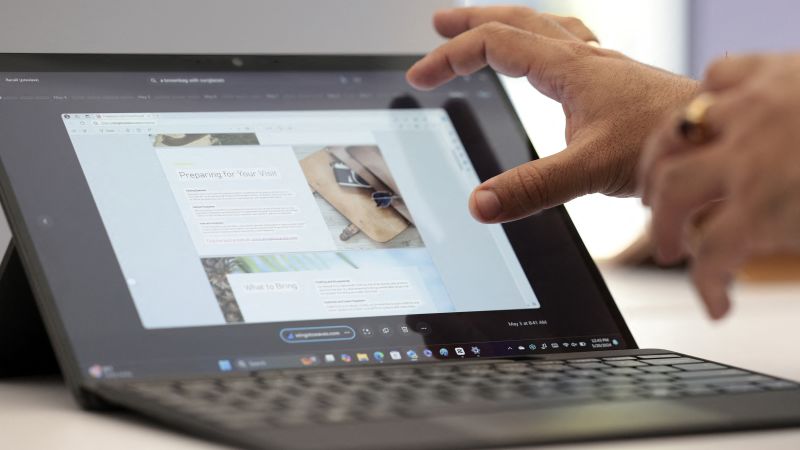Microsoft has introduced a new AI feature called Recall for Windows computers that acts as a personal “time machine,” allowing users to quickly pull up anything that has ever been on screen. The tool saves screenshots of the user’s screen and uses AI to process the data, making it searchable. The feature allows users to recall anything in their history that was shown on screen, different from a traditional keyword search. While semantic search is a big step forward for AI, concerns have been raised about potential misuse of the tool, especially in terms of privacy and security.
Jen Golbeck, a professor of AI at the University of Maryland focusing on privacy, warned that the recall feature could be a potential nightmare if the device falls into the wrong hands. The UK’s Information Commissioner’s Office is investigating the tool to understand the safeguards in place to protect user privacy. Microsoft CEO Satya Nadella stated that the data stays exclusively on the device and the user has full control over the tool. Geoff Blaber, CEO of CCS Insight, also believes that the controls built into the feature suggest it has security and privacy at its core, allowing users to customize and blacklist which apps and websites Recall can access.
Despite the built-in controls, concerns remain about potential misuse and privacy risks. Golbeck highlighted scenarios where the protection provided by Recall might not be sufficient, especially in situations like a journalist in a hostile country, someone in an abusive relationship, individuals searching for sensitive medical information, or employees being monitored by their employers. She raised concerns about the possibility of a permanent record of everything a user does being accessible, even if it stays on the device. Golbeck emphasized the importance of considering malicious uses during the development of technology, as past experiences have shown that they often come to fruition.
Although initial concerns have been raised about privacy and security, some experts believe that Microsoft and its partners will need to prove the value, security, and privacy of the Recall feature in the real world to overcome these issues. Michela Menting, a senior research director at ABI Research, expressed concerns about the potential for hackers to exploit the tool, despite the argument that physical access is needed to manipulate Recall. She considered Recall to be a step backward for privacy, highlighting the need for thorough assessment of potential risks and security measures. As with other advanced technologies, the real-world implementation of Recall will be critical in determining its impact on privacy and security.
Overall, the introduction of the Recall feature by Microsoft has sparked discussions about the balance between innovation and privacy. While the tool provides significant utility for users in accessing past information on their devices, concerns about potential misuse, privacy risks, and security vulnerabilities have been raised. The need for transparency, safeguards, and user controls in the development and implementation of AI features like Recall is essential to ensure responsible and ethical use of technology. As the industry continues to evolve rapidly, the importance of addressing privacy concerns and potential misuse remains a key focus for regulators, companies, and consumers alike.















